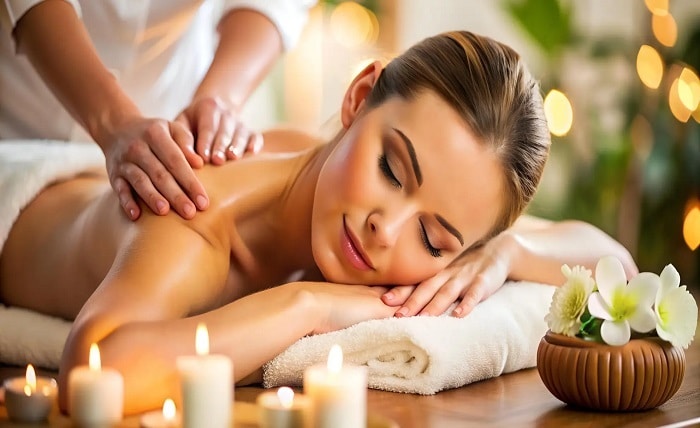Sleep disorders, particularly insomnia, affect millions of people worldwide. Struggling to fall asleep, waking up frequently during the night, or waking up too early can take a toll on both physical and mental health. While medications and lifestyle changes are common remedies, massage therapy offers a natural and effective alternative to help you achieve restful sleep. In this article, we’ll explore six points on how massage therapy can be a powerful tool in combating insomnia and promoting better sleep quality.
Stress Reduction for The Gateway to Better Sleep
Stress and anxiety are leading causes of sleep disorders, creating a vicious cycle where poor sleep worsens stress, and stress worsens sleep quality. 안산출장안마 Massage therapy targets the nervous system, helping to reduce cortisol levels (the stress hormone) and increase endorphins and serotonin chemicals that promote relaxation and well-being. When these stress hormones are reduced, the body and mind are more prepared to relax, making it easier to fall asleep and stay asleep. A therapeutic massage, such as Swedish or aromatherapy massage, can create a state of deep relaxation, signaling the brain to enter a calmer state. This process can be especially beneficial for individuals who struggle to ‘switch off’ their thoughts before bed, helping them enter a restful state where sleep comes more naturally.
Improving Circulation for Enhanced Relaxation
One of the significant benefits of massage therapy is its ability to improve blood circulation. When blood flow is enhanced, muscles receive more oxygen and nutrients, allowing them to release built-up tension and relax. This relaxation extends beyond the muscles, reaching the entire body and promoting a state of calm that is conducive to sleep. Techniques like deep tissue massage focus on relieving chronic muscle tension and knots, which are common among individuals who have insomnia due to physical discomfort or pain. By addressing these physical issues through targeted massage techniques, individuals may find relief and a subsequent improvement in sleep quality. Proper circulation also aids in the removal of toxins from the body, further promoting overall wellness and better sleep.
Regulating the Nervous System of Entering the Sleep State
Massage therapy has a profound impact on the parasympathetic nervous system, which is responsible for rest and recovery. Insomnia often results from an overactive sympathetic nervous system (the ‘fight or flight’ response), which keeps the body on high alert even when it’s time to rest. Massage helps shift the nervous system from a state of alertness to one of relaxation by stimulating the parasympathetic system, encouraging the body to enter a state more suitable for sleep. Techniques such as acupressure and reflexology can be particularly effective in this regard. By applying pressure to specific points associated with relaxation and sleep, massage therapists can help reset the body’s natural sleep-wake cycle, making it easier to transition into a sleep state and experience uninterrupted rest.
Balancing Hormones on The Key to Sleep Regulation
Massage therapy plays a vital role in balancing hormones that regulate sleep patterns. One important hormone, melatonin, is responsible for regulating sleep-wake cycles. When the body is stressed or overstimulated, melatonin production is often inhibited, making it difficult to fall asleep or stay asleep. Massage therapy helps stimulate melatonin production by enhancing relaxation and reducing cortisol levels. Moreover, massage can increase serotonin levels, which act as a precursor to melatonin. By promoting serotonin production, massage helps the body naturally produce more melatonin, which aids in achieving more profound and longer sleep cycles. Individuals who regularly engage in massage therapy may notice a significant improvement in their sleep patterns and a reduction in the frequency of insomnia episodes.
Alleviating Chronic Pain and Discomfort
Many people have insomnia due to chronic pain or discomfort, whether from conditions like arthritis, fibromyalgia, or muscle stiffness. Pain makes it challenging to find a comfortable sleep position, leading to frequent waking and poor sleep quality. Massage therapy offers a targeted approach to manage and alleviate pain through muscle manipulation, joint mobilization, and soft tissue release. Techniques such as myofascial release and trigger point therapy work to relieve muscle tension and pain, creating a more comfortable physical state that supports restful sleep. Additionally, the relaxation effect induced by massage therapy helps the body enter a state of deep rest, enabling those who struggle with pain-related sleep disturbances to experience more consistent and restorative sleep.
Customizing Uiwang Massage Therapy for Sleep Optimization
Every individual’s sleep needs and challenges are different, and massage therapy can be customized accordingly. Professional massage therapists often work closely with clients to identify specific areas of tension, sources of stress, or chronic pain conditions that may be impacting sleep. They can then tailor massage techniques, such as aromatherapy with calming essential oils like lavender, chamomile, or eucalyptus, to enhance the relaxing effects of the session. Additionally, 의왕출장마사지 massage therapists may recommend self-massage techniques, stretching routines, or breathing exercises that clients can use at home before bedtime. Incorporating these practices into a nighttime routine can reinforce the benefits of regular massage therapy, creating a comprehensive approach to managing insomnia and promoting healthier sleep habits.
In Summary
Massage therapy is a powerful, natural approach to addressing sleep disorders like insomnia. By reducing stress, improving circulation, regulating the nervous system, balancing hormones, alleviating chronic pain, and customizing treatment, massage therapy provides a holistic solution for achieving better sleep. For those struggling with insomnia, integrating massage therapy into their wellness routine may be the key to saying goodbye to restless nights and welcoming peaceful, restorative sleep.





